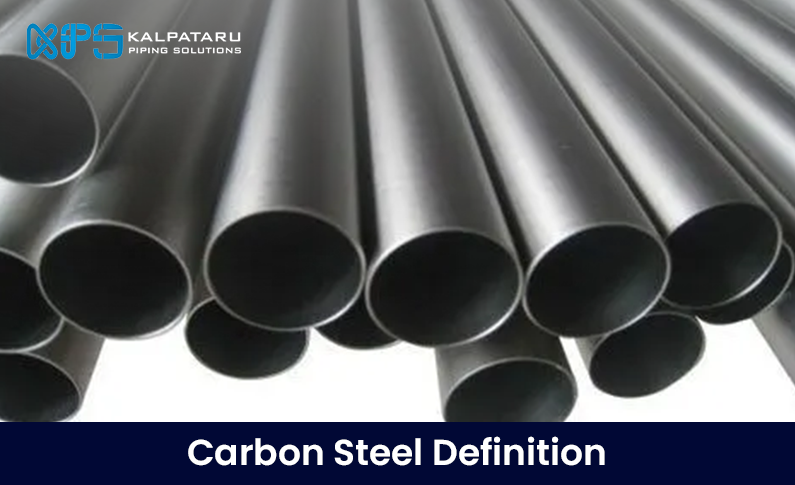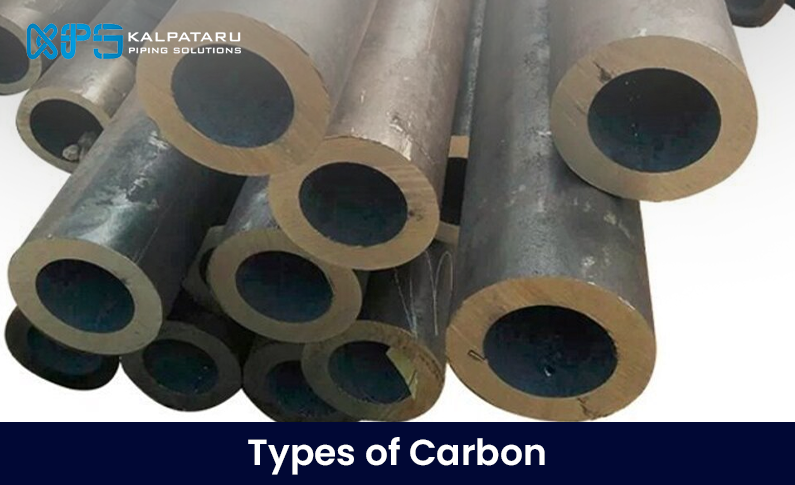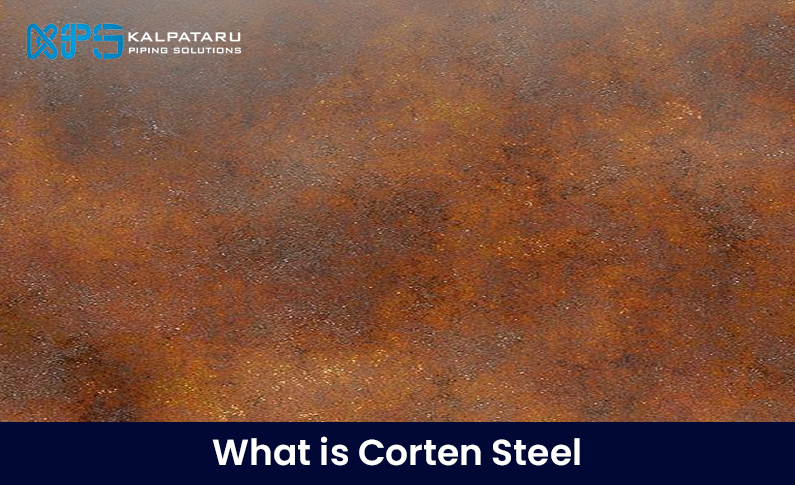Alloy steel is a type of steel that contains alloying elements other than carbon to improve its properties. These elements can include chromium, cobalt, columbium, molybdenum, manganese, nickel, titanium, tungsten, silicon, and vanadium. By adding these elements, alloy steels gain enhanced characteristics compared to plain-carbon steel, such as better corrosion resistance, increased hardness, greater strength, improved wear resistance, and greater toughness.
Alloy steels are used in various industries for making fabrication tooling and end products. The specific grade and composition of the alloy steel can be adjusted to meet the needs of different applications.
This article explores the different classes of alloy steels, including their compositions, properties, and applications.
What is Alloy Steel?
Alloy steel is a type of steel that, in addition to carbon, contains one or more additional elements. These alloying elements are intentionally added to enhance the steel’s physical and mechanical properties, including hardness, strength, toughness, high-temperature performance, corrosion resistance, and wear resistance. Typically, these alloying elements make up between 1-50% of the steel’s composition. Alloy steels can be categorized based on their major alloying elements—such as stainless steels, which contain significant amounts of chromium—or by the total percentage of alloying elements, where high-alloy steels have more than 8% alloying elements and low-alloy steels have less.
What is the Composition of Alloy Steel?
Alloy steel is made with additional elements to give it special properties. Common additions include boron, chromium, molybdenum, manganese, nickel, silicon, tungsten, and vanadium. These elements help improve the steel’s hardness or resistance to corrosion. Sometimes, less common elements like aluminum, cobalt, copper, lead, tin, titanium, and zirconium are also used. The mix of these elements changes depending on what the steel will be used for and the properties needed.
How Much Carbon is in Alloy Steel?
The amount of carbon in alloy steel varies based on its type and purpose. Most alloy steels have less than 0.35% carbon. For example, low-carbon steels used for welding have less than 0.25% carbon, and sometimes even less than 0.15%. On the other hand, tool steels, which are designed for durability and hardness, typically contain between 0.7% and 1.5% carbon.
How is Alloy Steel Made?
Alloy steel is produced through a detailed process. First, the base alloys are melted in an electric furnace at temperatures above 1600°C for 8 to 12 hours. This high heat helps to mix the alloying elements thoroughly. After melting, the steel is annealed at temperatures over 500°C to modify its chemical and physical properties and to remove impurities.
During annealing, a layer called mill scale forms on the surface. This scale is removed using hydrofluoric acid. The annealing and descaling processes are repeated until the steel is properly purified and ready for further shaping. The molten steel is then cast into shapes and rolled to meet the required dimensions.
Steel production generally involves two main methods:
- Electric Arc Furnace (EAF): This method melts scrap steel, direct reduction iron, or pig iron using electrical currents to produce molten steel.
- Blast Furnace: This process starts by turning iron ore into pig iron using coke and limestone. The pig iron is then further processed into steel.
Where is Alloy Steel Used?
Alloy steel has diverse applications based on its type. Some alloy steels are used to make pipes, especially for energy-related purposes, while others are employed in creating corrosion-resistant containers, silverware, pots, pans, and heating elements for appliances like toasters.
Low-Alloy Steels are valued for their strength, machinability, and cost-effectiveness. These steels are commonly used in ships, pipelines, pressure vessels, oil drilling platforms, military vehicles, and construction equipment.
High-Alloy Steels are more expensive and complex to handle but are ideal for applications requiring high strength, toughness, and corrosion resistance. They are commonly used in automotive parts, chemical processing equipment, and power generation systems.
What Are the Properties of Alloy Steel?
Alloy steel has several important properties, depending on its composition. It typically offers:
- High Performance: Reliable and effective in various applications.
- Durability: Long-lasting and able to withstand tough conditions.
- High Strength: Greater strength than standard carbon steels.
- Good Performance Under Harsh Conditions: Maintains functionality in extreme environments.
Corrosion Resistance: Resists rust and corrosion, especially with elements like chromium.
What Temperature is Required to Harden Alloy Steel?
Not all alloy steels can be heat treated. For instance, ferritic and austenitic stainless steels are not heat treatable. To harden alloy steel, it needs a sufficient carbon content. For example, martensitic steels, which have a high carbon content, can be effectively hardened.
For alloy steels that can be hardened, the temperature required typically ranges from 760°C to 1300°C, depending on the carbon content. The hardening process involves heating the steel to these temperatures and then cooling it under controlled conditions.
What Are the Main Types of Alloy Steel?
Here is the table format of the content:
|
Steel Type |
Classification |
|
Low-Alloy Steel |
Less than 8% alloying elements |
|
High-Strength Low Alloy (HSLA) Steel |
Low alloy steel |
|
High-Alloy Steel |
More than 8% alloying elements |
|
Stainless Steel |
High alloy steel |
|
Advanced High-Strength Steel (AHSS) |
Low alloy and low carbon content |
|
Maraging Steel |
Low carbon content |
|
Tool Steel |
High carbon content |
1. Low-Alloy Steel
Low-alloy steels contain less than 8% alloying elements. These elements, such as molybdenum, nickel, and chromium, enhance the steel’s strength, toughness, and resistance to high temperatures and corrosion. Common uses include military vehicles, construction equipment, ships, pipelines, pressure vessels, and oil drilling platforms.
2. High-Strength Low Alloy (HSLA) Steel
HSLA steel, or microalloyed steel, is known for its high strength and good corrosion resistance. It comes in several types, including weathering steel, acicular ferrite steels, and dual-phase steels. Elements like copper, chromium, and vanadium improve strength and resistance. HSLA is widely used in the automotive industry for parts like suspension systems, chassis, and wheels, as well as in structural reinforcements.
3. High-Alloy Steel
High-alloy steels contain over 8% alloying elements. Although expensive and difficult to work with, they offer excellent hardness, corrosion resistance, and toughness. These steels are ideal for automotive parts, chemical processing equipment, and power generation systems.
4. Stainless Steel
Stainless steel is highly resistant to corrosion, thanks to its main elements: nickel, chromium, and sometimes molybdenum. There are three main types:
- Austenitic: With high nickel and chromium content, these steels are used in harsh environments and for extreme temperatures.
- Ferritic: Containing less carbon and more chromium, ferritic steels resist corrosion but are harder to heat treat. They are used in industrial machinery and automotive parts.
- Martensitic: With high carbon and chromium content, martensitic steels are known for their hardness and are used for cutlery, tools, and surgical instruments.
5. Microalloyed Steel
Microalloyed steel, often a type of HSLA steel, includes small amounts of elements like vanadium or niobium. These additions improve strength and toughness, making it suitable for demanding applications.
6. Advanced High-Strength Steel (AHSS)
AHSS is designed for the automotive industry to reduce vehicle weight while maintaining high strength and formability. This makes it ideal for components that need to be both strong and lightweight.
7. Maraging Steel
Maraging steel is a high-strength, low-carbon steel that gains its strength from intermetallic compounds rather than carbon. Known for its toughness and ductility, it’s used in aerospace, tool manufacturing, and weaponry.
8. Tool Steel
Tool steel is a range of steels made for tools and dies. It is known for its hardness, wear resistance, and ability to retain its properties at high temperatures. It’s commonly used in the production of machine dies and hand tools.
Is Alloy Steel Suitable for Injection Molding?
Yes, alloy steel is suitable for injection molding. Low-alloy steels, such as grade P20, are commonly used for molds in the injection molding process. P20 steel is preferred because it offers good resistance to corrosion and wear, making it ideal for producing molds for common plastics.
Summary
This Blog introduced alloy steel, detailing its properties and its importance in manufacturing. For more information about alloy steel, please contact a representative from Kalpataru Piping Solutions.
FAQs
What is plain-carbon steel?
Plain-carbon steel, also known as carbon steel, is an alloy of iron and carbon. It contains minimal additional elements, with only small amounts of manganese (up to 1.65%), silicon (up to 0.60%), and copper (up to 0.60%) allowed. This type of steel is characterized by its simple composition and is used for a wide range of applications.
What is alloy steel?
Alloy steel is a type of steel that includes various elements beyond carbon, such as molybdenum, manganese, nickel, chromium, vanadium, silicon, and boron. These elements are added to enhance the steel’s properties, including its strength, hardness, wear resistance, and toughness. The concentration of these alloying elements typically ranges from 1% to 50%.




